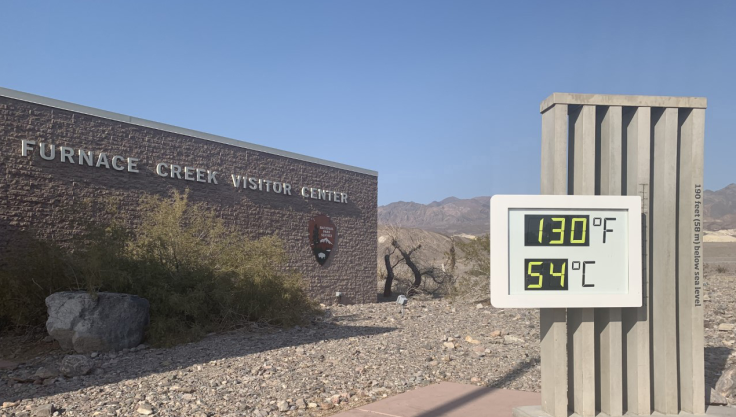
SEATTLE - As scorching-high temperatures keep on hitting most of the United States, people in some of the hottest places are now at an increased risk of serious contact burns. Playgrounds, roads and even sidewalks in some areas get so hot that skin contact could result in second-degree and third-degree burns. In some cases they could even be fatal, according to experts.
Streets are often the hottest surfaces, as dark asphalt paving absorbs more sunlight than lighter-colored surfaces. Asphalt can absorb up to 95% of solar radiation, and these types of surfaces can easily be 40 to 60°F hotter than the air temperature on a very hot day.
Earlier this month, researchers at NASA's Jet Propulsion Laboratory in Southern California mapped scorching pavement in Phoenix where contact with skin can cause serious burns. NASA's instrument called ECOSTRESS (short for the Ecosystem Spaceborne Thermal Radiometer Experiment on Space Station) showed how miles of asphalt and concrete surfaces registered at least 120°F to the touch, with the city's Sky Harbor International Airport recording land surface temperatures of around 140°F (60°C).
Surface burns are a nationwide issue but no place records more such incidents than the desert Southwest, Phoenix and Las Vegas standing out. On July 14, the National Weather Service office in Las Vegas announced the ending of an 11-day streak of consecutive 110°F days, the longest such streak on record.
In the last two years, the Arizona Burn Center at Valleywise Health Medical Center in Phoenix, the largest burn center in the Southwest, has seen an increase of victims treated. In 2022, they admitted 85 patients for contact burns over the summer and in 2023 that number jumped to 136, 14 of whom died. So far this year, the center has already treated 50 patients, with four of them dying.
This is issue is not isolated in said region. Cities in the east coast such as Jacksonville, Florida, have also seen an increase in these type of burns. Syed Saquib, medical director of the burn care center at University Medical Center, said his center admits one or two such patients daily in the summer. Last week, about half of the 31 patients hospitalized with burns had suffered pavement burns.
According to medical experts, the groups that are more susceptible to surface burns include the elderly, children and homeless people. The American Burn Association said that about 40% of patients require surgery to remove the damaged tissue and cover the area with skin grafts.
"The people that are dying from these types of burns are not people who just end up with some blistering on their feet," said Dr. Clifford C. Sheckter, surgeon and a burn prevention researcher at Stanford University. "Your body just literally sits there and cooks. When somebody finally finds you, you're already in multisystem organ failure," he added.
© 2025 Latin Times. All rights reserved. Do not reproduce without permission.





